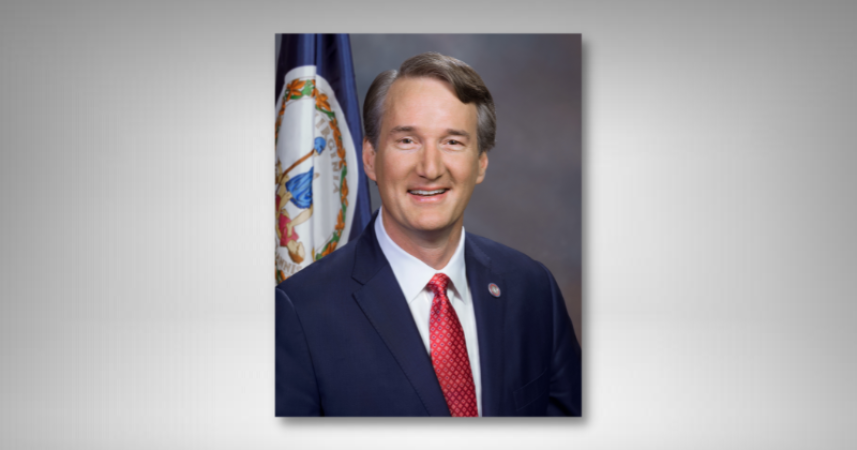Governor Glenn Youngkin recently flew to Louisiana to join other Republican governors in criticizing President Joe Biden’s energy policy, especially the president’s hostility to hydrocarbon fuels. Youngkin and the rest gathered at an oil refinery to make their point that oil and gas should not go away in the decades to come.
Energy realism begins at home. Right here in Virginia Youngkin has a golden opportunity to fix Virginia’s broken energy policy and to maintain energy choice in our state economy. The 2025 General Assembly may revisit the Virginia laws meant to eliminate natural gas electricity. Youngkin should make it clear early that he will only sign a bill that protects energy reliability, preserves consumer choice, and prevents major cost increases.
Youngkin is celebrating some energy policy wins that are good news for Virginia consumers. The state is now out of the Regional Greenhouse Gas Initiative, a carbon tax meant to punish the use of coal or natural gas in making electricity. Prior carbon tax payments made by our dominant electricity provider are now fully reimbursed and the cost has disappeared from monthly bills.
We got out in the nick of time. Yet another RGGI carbon allowance auction was held on June 5th and the carbon tax rose to $21.03 per ton, a new record. In the March 2021 auction, Virginia’s first, the tax was $7.60 per ton. When Virginia Democrats voted to put Virginia under RGGI, the tax was standing at less than $6, and nobody except the Thomas Jefferson Institute spoke honestly about how it would likely increase.
Last week, Youngkin announced that he and Attorney General Jason Miyares have concluded Virginia is not legally obligated to adopt the most recent California air emissions regulations for light-duty vehicles. The now abandoned rules would have controlled the mix of new vehicles sold, with a rising requirement that a percentage of them be all-electric. A legal challenge is likely.
Exiting the RGGI and California Advanced Clean Car interstate compacts were huge and positive steps. But the larger challenge to Virginia consumers is the 2020 Virginia Clean Economy Act (VCEA), which also seeks to drive hydrocarbon fuels out of the electricity market within a few years. Even more broadly restrictive on Virginia’s economy is the clean energy policy enshrined in state law which demands changes in agriculture, transportation, and energy in homes and offices.
During the 2024 General Assembly, legislators sidestepped most efforts to either strengthen or weaken the clean energy mandates. Key Senate Democratic leaders instead discussed plans to revisit and revise the full VCEA later in 2024. That effort is fully underway, with more transparency than is usually the case when the legislature meddles in energy policy.
Unfortunately, nobody on the inside is focused on protecting the average residential user or the small business customer. Senator David Marsden, D-Fairfax, has grabbed control of the effort (not actually authorized by a study resolution) and he recently told stakeholders that an activist environmental legal agency, The Southern Environmental Law Center (SELC) will be the official protector of consumers.
The SELC in Charlottesville as the retail consumer advocate in the closed-room negotiations? The utilities themselves will have more concern for the ratepayer impact of the massive switch to solar, wind, and battery power. Marsden’s designation of SELC as speaking for ratepayers is a flashing warning sign of what may emerge.
If there is going to be a revision of the VCEA, ratepayer concerns about reliability and cost need to lead the agenda. VCEA is composed of deadlines to eliminate coal and natural gas at power plants, mandates for the construction of expensive wind, solar, and battery projects, and required purchases of “renewable energy certificates,” which create no electrons for Virginia homes or businesses.
One way or another, all those costs land on customers. If the rapid conversion to unreliable wind and solar power means Virginia faces periods of energy shortage, especially if the expanding energy demands of the tech industry and their data centers match expectations, people will feel the pinch at home as their power is metered or included in unscheduled rolling blackouts.
The panel of stakeholders Marsden announced in late May is dominated, however, by the utilities, the anti-carbon fuel environmentalists, lobbyists for companies that will reap billions in revenue building wind, solar, and battery installations, and gigantic industrial players who are also pledged to some version of net-zero or zero-carbon energy.
Local governments are at the table because the solar industry is complaining it cannot get enough locations approved. Bills were introduced in 2024 to override local zoning and neighbor complaints and force approval of about ten times as many solar farms as have already been built — miles and miles of panels. VCEA requires it. Many farmers are eager to convert to a crop of electrons.
The Youngkin Administration is represented in Marsden’s effort through the Department of Energy. But it remains an advocate for Youngkin’s “all of the above” rhetoric, which commits Virginia to the continued expansion of weather-dependent generation. For example, it may continue to support the expansion of offshore wind beyond what is already planned. It is actively chasing all forms of federal funding, a trail of breadcrumbs leading Virginia away from reliable energy.
“All of the above” is a fine political slogan but is a mushy energy policy. A real energy policy is going to demand some actual choices and standing up to bullies. A real energy policy will make reliability the priority. A real energy policy will require substantial natural gas generation to continue well into the 21st century at the very least and need far less wind or solar. If enough of the current legislators do not understand that the voters should pick some new ones.

Steve Haner is a Senior Fellow for Environment and Energy Policy. He can be reached at Steve@thomasjeffersoninst.org.






